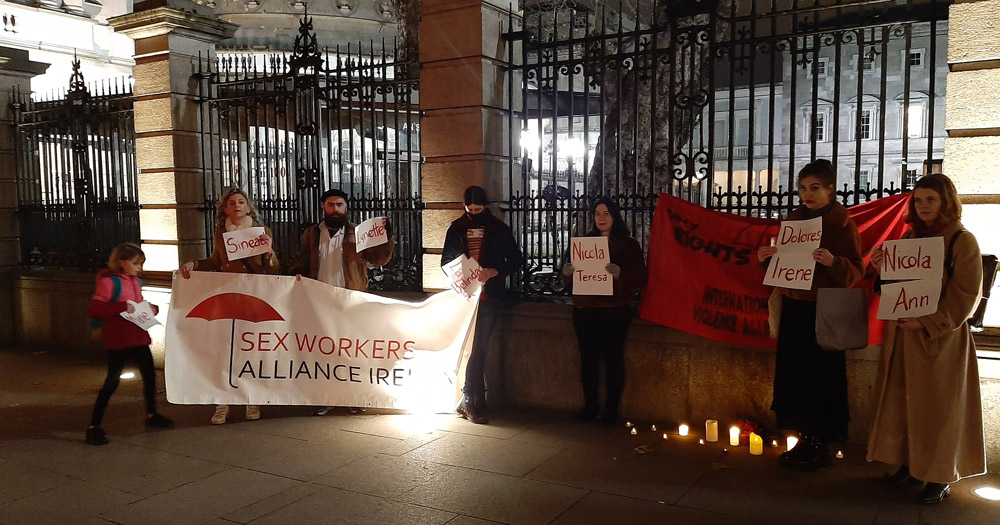A new report released today by Amnesty Ireland finds sex workers are at risk of violence due to legislation aimed at protecting them.
The report was based on interviews conducted between August 2020 and October 2021. In total 30 people were interviewed who are currently or have previously engaged in sex work in Ireland.
The 2017 amendment to the Criminal Law (Sexual Offences) Act was initially introduced to ‘protect’ sex workers by criminalising the purchase of sex, rather than the sex workers themselves. However, the new report released by Amnesty today, finds that the legislation has left sex workers vulnerable to abuse and violence.
Due to the criminalisation of clients, sex workers maintain that they are being forced to take unnecessary risks. One of the people interviewed stated, “I was down a cul de sac that was discreet so I wasn’t going to be found by the Guards. But I had no escape route if anything went wrong. That was a direct result of Garda targeting of clients”
NEW REPORT: “We live within a violent system.” Structural violence against sex workers in Ireland – this is what our research found (Thread) ?#decrimforsafety #rightsforsexworkers pic.twitter.com/AXBDMo2exq
— Amnesty Ireland (@AmnestyIreland) January 25, 2022
The Act also prohibits “brothel keeping”, identifying the term as two or more people providing sexual services from the same premises. This means that sex workers are forced to work alone often leaving them in dangerous situations.
The report suggests that “The majority of the sex workers interviewed identified sharing premises with other workers as a useful strategy to limit potential risks of violence”.
Many of the interviewees were also distrustful of Gardaí citing motivating factors as being “lack of trust in the service; fear of violence at the hands of the Gardaí; fear of stigmatisation; their landlord being notified or targeted leading to eviction; homelessness, as well as criminalisation, with particular risks to migrant sex workers mentioned.”
"In a report published today, the human rights organisation said a law introduced five years ago which criminalises the purchase of sex in Ireland is facilitating the targeting and abuse of sex workers." https://t.co/WwaqocF5SH
— Amnesty Ireland (@AmnestyIreland) January 25, 2022
In order to address the issues arising, the report suggests that sex workers should “be meaningfully consulted in the development of laws, policies or programmes that affect them & their human rights.”
It also points out that any participation in the consultation process must include a cross-section of workers including “those from marginalised groups and those facing discrimination.”
In their sex work policy, Transgender Europe (TGEU) states, “TGEU recognises that sex work is a multi-gendered phenomenon and sex workers of all genders in many countries face serious violence and human rights violations. While the majority of sex workers are cisgender women in many contexts, the large number of cisgender men and trans people working in the sex industry needs to be acknowledged.”
Although statistical data is lacking here, it would appear that Ireland follows these trends recognised in TGEU’s report.
© 2022 GCN (Gay Community News). All rights reserved.
Support GCN
GCN is a free, vital resource for Ireland’s LGBTQ+ community since 1988.
GCN is a trading name of National LGBT Federation CLG, a registered charity - Charity Number: 20034580.
GCN relies on the generous support of the community and allies to sustain the crucial work that we do. Producing GCN is costly, and, in an industry which has been hugely impacted by rising costs, we need your support to help sustain and grow this vital resource.
Supporting GCN for as little as €1.99 per month will help us continue our work as Ireland’s free, independent LGBTQ+ media.
